| |||||||||||||||
|
| 31st December | Egypt's Reputation Harmed ... |
|
| 28th December | Censors Busy on the Internet ... |
|
| 25th December | Pakistan closes 43 cable channels ... |
|
| 21st December | Manufacturing Consent ... |
|
| 18th December | Jailed ... |
|
| 16th December | Post Coup Censorship ... |
|
| 15th December | Surfing for Seks ... |
|
| 13th December | Update: An Adult Debate ... |
| |
| 13th December | Update: Naked Prudery ... |
|
| 13th December | The Repression Game
|
| 13th December | Back Door Sharia
|
| 11th December | Eighth Year Running
|
| 9th December | Naked Repression
|
| 5th December | An Eye for the Ridiculous
|
| 5th December | Ministry of Disinformation
|
| 5th December | SmackDown
|
| 19th November updated to 7th December |
Lethal Censorship
|
| 7th December | Update:
Blame War  Bavaria and Lower Saxony propose draconian games
ban Bavaria and Lower Saxony propose draconian games
ban
|
| 18th November updated to 5th December |
Thorny Issue
|
| 19th November | Update:
Premature Burial Rumours
|
| 25th November | Update:
Rose Buried
|
| 1st December | Comment: Rose Hype
|
| 5th December |
Comment: Europe's Crusade against Violence
|
| 5th December | Update:
European Rule
|
| 4th December | Nutters Don't Kiss
|
| 2nd December | Taking a Breather in
Repression Marathon
|
| 17th November updated to 4th December |
Book Banning
|
| 4th December | Update:
Site Banning
|
| 1st December | Summer of Censorship
|
| 28th November | Googling for "Impossible
Task"
Italian
prosecutors have put two Google Italy representatives under investigation as part of an inquiry into how a video of teenagers harassing an autistic classmate surfaced on its video site, a judicial source said. |
| 27th November | Update:
India to Grow up...Maybe
The Indian government is exploring the possibility of allowing movies certified for adult viewing during late night hours. |
| 24th November | 12 Years for Selling Porn
A person who was
jailed for 12 years for selling pornographic goods was among six people imprisoned in China's latest crackdown on piracy and pornography. The person was also fined 5,000 yuan ($625). |
| 26th November | Canada Gets a Cleanfeed
Canada’s largest Internet service providers (ISPs) have joined forces with Cybertip.ca, Canada’s Cybertip.ca will establish a list of the sites to be filtered which will be incorporated automatically into the ISPs’ filters. The ISPs will have no involvement in compiling the Cybertip.ca list. |
| 23rd November | Blogger Police
Tarnish Egypt's Reputation
Police in Cairo have detained a blogger whose posts have been critical of the Egyptian government. Rami Siyam, who blogs under the name of Ayyoub, was detained along with three friends after leaving the house of a fellow blogger. No reasons have been given for Siyam's detention. The other friends were released after being questioned. |
| 22nd November | Encyclopedic Knowledge of
Censorship
The One week after gaining unfettered access to the online encyclopedia Wikipedia, Chinese Internet users have been cut off from the service again. |
| 20th November | The Grizzly Details
of Chinese Censorship
China will restrict broadcast reporting on vicious crimes so the country's young people have a healthier media environment, the Beijing government says. |
| 20th November | Archaic Censorship
Reporters Without Borders
has condemned the "archaic censorship" being implemented by the communications ministry and reiterated its call for the government of Chad to lift the draconian curbs on press freedom that are part of a state of emergency decreed on 13 November
2006. |
| 19th November | Freedom Against Censorship
Thailand
|
| 18th November | Porn in Africa From IPP Media The Tanzanian government has said that there is an on-going crackdown against people who possess pornographic materials. |
| 18th November | Governed by Omens
Thailand's new
military-appointed government is threatening to shut down an operatic version of Asia's classic Ramayana epic, ostensibly over fears one of its scenes may bring bad luck, the opera's composer said. Somtow said the officials told him that: If anything happened to anyone in power in Thailand, it would be blamed on this production." |
| 17th November | Repression Reaches Out From IFEX
|
| 16th November | Operation Anti-Censorship
|
| 16th November | 3 Years in Jail for a Porn Email
The Thai National Legislative Assembly
(NLA) yesterday approved in principle a bill which will allow the state to punish people responsible for computer-based crimes including data theft and the dissemination of pornographic materials. A vetting committee is set to scrutinise the bill in
seven days. |
| 14th November | Uptight Malaysia Shocked
Malaysian
government leaders have rebuked a local newspaper for publishing a frank expose of sexual attitudes among the country's youth. |
| 11th November | Sudan Press Muzzled
The Sudanese government is engaged in
an increasingly blatant effort to muzzle and intimidate Sudan's independent press, Human Rights Watch said today. |
| 11th November | Censorship Coup
Government bans
on a number of websites that posted criticisms of the Sept 19 coup d'etat violate the basic right of freedom of expression and should be lifted, website operators said yesterday. Somkiat Tangmano, webmaster of the Midnight University website, said the
censorship or ban on websites should not be based on the judgements of just a few people. |
| 9th November | Enemies of the Internet
From the BBC A list of 13 "enemies of the internet" has been released by human rights group
Reporters Without Borders (RSF) . The list consists of countries that RSF believes are suppressing freedom of expression on the internet. |
| 6th November updated to 8th November | Turkishness
= Unacceptable Human Rights
Turkey's prime minister met with representatives of trade unions and other non-governmental organizations yesterday to listen to suggestions for possible changes to an article in the country's penal code that has been
used to charge dozens of writers, journalists and academics for expressing their opinions. |
| 8th November | Update: Must Do Better
Freedom of speech in
Turkey is not guaranteed, the European Commission has said in a key progress report on Turkey's application to join the EU. |
| 4th November | Internet Put To Rights From the BBC A bill of rights for the internet age has been proposed at a United Nations' conference in Athens. The bill would update and restate rights
that have been enshrined for centuries, said Robin Gross of civil liberties group IP Justice. |
| 27th October | A Disgrace
Censorship of filmmakers, artists and writers is escalating in
Sri Lanka in line with the Rajapakse government’s intensification of its war against the Liberation Tigers of Tamil Eelam (LTTE). |
| 24th October | Inappropriate Censorship
When a user flags a YouTube video as inappropriate, they're presented with five potential reasons (all exclusive of copyright complaints, which are handled separately). The available flavors of naughtiness are "Sexually explicit,"
"Mature (over 18 only) content," "Other terms of use violation," "Graphic violence," and the recently added "Hate speech." Some of these flags, especially the "Mature" variety, can just result in a clip
getting an interstitial warning -- users will henceforth see a screen asking them to confirm their willingness to wallow in the evil video before it plays. Those that fail the appropriateness test completely get deleted. Supposedly, any flagged clip will
be reviewed within 24-48 hours. |
| 24th October | Land of the Even Less Free
|
| 24th October | Registering for Repression
The Chinese
government plans to register millions of Chinese Internet bloggers who are using the web to publish their views under a pseudonym, thus forcing them to subscribe to censorship from the central authorities. This was reported today by the official state
media. |
| 23rd October | Registering Repression Based on
an article from IWPR |
| 23rd October | Censored by Price
From The State |
| 22nd October | World Leader Threatened by Cartoons From
The Scotsman |
| 22nd October | Making Notes About Repression From
BBC & Buzzle |
| 22nd October | The Domain of the Easily Offended From
The Times The Companies Registration Office (CRO) refused Ryan’s application to register the word as a business name, telling him his request was being returned as the name “could be deemed to be offensive to
others”. The IE Domain Registry (IEDR) defended its decision last week, saying it made group decisions on possibly controversial registrations. They said 10 applications for “porn” have been refused
since September 2001. But the IEDR says it seems to be the only word refused so far under section 3.4 of the naming policy. |
| 21st October | Slow Lane to Repression From
The Guardian |
| 17th October | An End to Sedition From
Stuff
The commission is calling for submissions of its draft report which close on December 15. |
| 16th October | No Denying the Political Fallout From Turkish Weekly 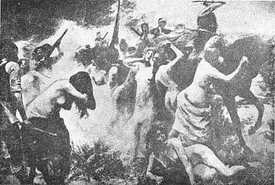 The Turkish
Parliament is to convene for an extraordinary meeting on Tuesday to discuss possible steps towards France after its Parliament approved a bill criminalizing denial of an Armenian "genocide," Foreign Minister Abdullah Gul has announced. The Turkish
Parliament is to convene for an extraordinary meeting on Tuesday to discuss possible steps towards France after its Parliament approved a bill criminalizing denial of an Armenian "genocide," Foreign Minister Abdullah Gul has announced. We warned France that if such a bill were passed by its Parliament, the loser would be France. Paris will always be embarrassed by this , Gul said, evaluating the passage of the bill which introduces prison terms up to one year and fines up to 45,000 euros to those who question the Armenian genocide claims. Lashing out at the decision, Gul said, France showed the world that it is a country which runs behind small policies. For the sake of interests in the upcoming elections, France has destroyed its historic prestige. Gul also stressed that France will no longer be able to define or praise itself as the country of freedoms where thoughts are expressed without limits. Prime Minister Recep Tayyip Erdogan lashed out at the passing of Armenian bill, labelling the French legislation a great shame and black stain on freedom of expression. It is unacceptable for us to accept or show tolerance to the French move. Unfortunately, no one can control the consequences of the irresponsible behavior of French politicians, the Prime Ministry statement said. |
| 15th October | Modern Sheikhs From
IFEX |
| 14th October | Ultimate Censorship | ||
| From Blather.net
The driver of a minibus which took Lloyd to hospital, said Lloyd had been shot in the shoulder and his arm was broken from the initial exchange of
fire but he had been able to walk to the vehicle. However, the driver said U.S. troops, possibly firing from a helicopter, had shot the journalist in the head while the vehicle was leaving the scene. | From
Seattle Times
| ||
| 14th October | Dressed to Repress Based on an article from Gulf Times
|
| 13th October | Extremist Repression Based on an article from Red Bolivia
|
| 11th October | Anxious MPS Mop their Brows Based on an article from ANSA.it
|
| 11th October | Only Coffee in Chinese Internet Cafes Based on an article from China Daily
|
| 10th October | Against the Order of Nature From the
New York Times
The statute is being challenged under a lawsuit brought in 2001 by a gay-rights advocacy group called the Naz Foundation, which argued that the law contravenes rights enshrined in the Indian Constitution, including equality, privacy and freedom of
expression. |
| 8th October | Fashion for Accusation From
Scoop |
| 5th October | No Passports to Web Access From Monsters & Critics
|
| 2nd October | Press Spoiling for a Fight From Torronto Sun
|
| 1st October | Shop Censors From Games.net
|
| 1st October | Theatre Censorship From the Trinidad Express No more play! That was the directive handed down to Surinamese playwright Sharda Ganga by the theater after she refused to remove three
supposedly profane words from the script of her production, No More Stories, during its scheduled debut at the Port of Spain. |
|
| |||||||||
| |||||||||
| ||||||||||
 As they imprison blogger
As they imprison blogger 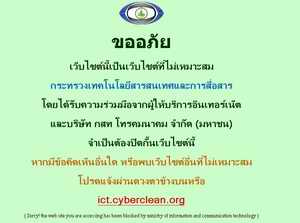 Thailand working alongside China
Thailand working alongside China  Censorship to preserve social,
religious and cultural values
Censorship to preserve social,
religious and cultural values  Turkey continues with repressive freedom of speech law
Turkey continues with repressive freedom of speech law 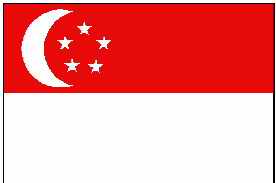 F or illegally speaking in public before Singapore elections
F or illegally speaking in public before Singapore elections
 Fiji editor to be deported
Fiji editor to be deported 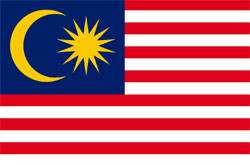 Normal, even in conservative Malaysia
Normal, even in conservative Malaysia 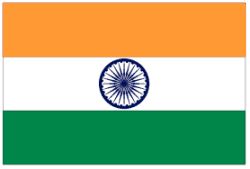 Indian
court disallows petition to ban adult debate
Indian
court disallows petition to ban adult debate  China targets online gaming
China targets online gaming  Pornography bill threatens pluralism in Indonesia
Pornography bill threatens pluralism in Indonesia 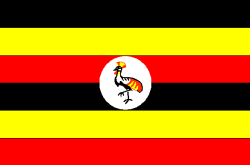 Uganda bans adult content from public places
Uganda bans adult content from public places  Indonesia wrestle with inanity
Indonesia wrestle with inanity 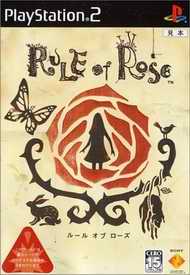
 Bollywood movie prosecuted over kiss
Bollywood movie prosecuted over kiss 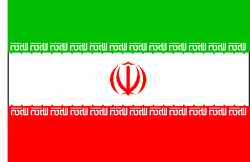 Iran has a purge on books
Iran has a purge on books  The long reach of China's censors
The long reach of China's censors  From
From  From
From
 Press release from
Press release from  From
From 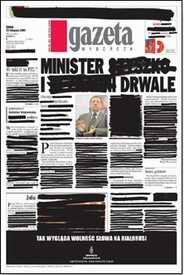 From
From  From the
From the 
 From the
From the  From
From 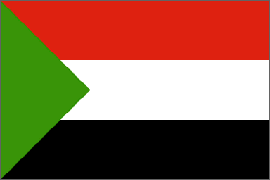 From
From 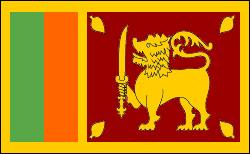 From
From  From
From  The Uzbek government
has introduced new registration procedures in order to tighten its hold over the media, and has now extended its reach to the internet as well.
The Uzbek government
has introduced new registration procedures in order to tighten its hold over the media, and has now extended its reach to the internet as well. 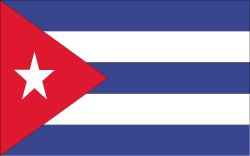 A
report by Reporters Without Borders, says Cuban Internet cafes at hotels and the post office allowed mostly unfettered access to Web sites, even those considered 'subversive'. But prices were excessive and security warnings popped up when the names of
well-known Cuban dissidents appeared on the screen.
A
report by Reporters Without Borders, says Cuban Internet cafes at hotels and the post office allowed mostly unfettered access to Web sites, even those considered 'subversive'. But prices were excessive and security warnings popped up when the names of
well-known Cuban dissidents appeared on the screen.  A British art expert was seized at a Moscow airport when border guards found satirical cartoons in his luggage depicting the Russian
president, Vladimir Putin, naked.
A British art expert was seized at a Moscow airport when border guards found satirical cartoons in his luggage depicting the Russian
president, Vladimir Putin, naked. 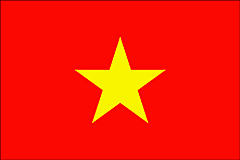 Vietnam's communist authorities have banned two newspapers from publishing for a month because of their reporting about the country's new bank notes.
Vietnam's communist authorities have banned two newspapers from publishing for a month because of their reporting about the country's new bank notes.  The registrar of the
Irish .ie internet domain extension has decided it must try to shield people from smut on the internet and, as a standard-bearing start, has banned use of the word “porn”.
The registrar of the
Irish .ie internet domain extension has decided it must try to shield people from smut on the internet and, as a standard-bearing start, has banned use of the word “porn”.  Suggestions that the US and UK military may have gone to extreme measures to ensure that independent journalists didn't operate in Iraq during the invasion:
Suggestions that the US and UK military may have gone to extreme measures to ensure that independent journalists didn't operate in Iraq during the invasion:
 When Chechen hardman Ramzan Kadyrov turned 30 last
week, Russian journalist Anna Politkovskaya said his birthday gift should be a criminal trial. Two days later, she was gunned down in her Moscow apartment building.
When Chechen hardman Ramzan Kadyrov turned 30 last
week, Russian journalist Anna Politkovskaya said his birthday gift should be a criminal trial. Two days later, she was gunned down in her Moscow apartment building. 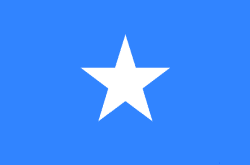 A list of 13 rules of conduct for journalists in
Somalia was issued after the head of the Islamic court's judicial administration, Sheik Hassan Osman, summoned representatives of all privately owned media in Islamist-held areas of Somalia.
A list of 13 rules of conduct for journalists in
Somalia was issued after the head of the Islamic court's judicial administration, Sheik Hassan Osman, summoned representatives of all privately owned media in Islamist-held areas of Somalia. 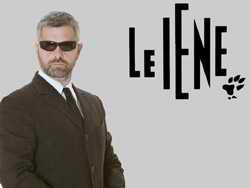 A television prank which threatened to expose widespread
drug use among Italian MPs has been banned from broadcast. It was due to be included in Le Iene ( The Hyenas ), a popular satire show.
A television prank which threatened to expose widespread
drug use among Italian MPs has been banned from broadcast. It was due to be included in Le Iene ( The Hyenas ), a popular satire show.  A growing citizens’ movement is rallying against a
145-year-old law still embedded in the Indian penal code that bans gay sex.
A growing citizens’ movement is rallying against a
145-year-old law still embedded in the Indian penal code that bans gay sex. 

